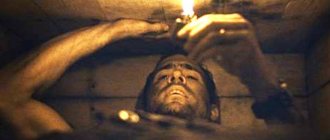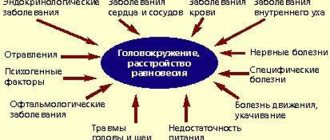Various fears are natural companions of human life. Some things frighten you with the real possibility of harming your health, others with the lack of control, and others with the unknown and misunderstanding. But there are certain fears that are caused by superstition. Fear of the number 13 is one of these phobias.
Scientific name of phobia
Triskaidekaphobia from the ancient Greek words τρεισκαίδεκα - thirteen and φόβος - fear, means a painful dislike of the number 13. There is also a synonym terdekaphobia. Oddly enough, it was this superstitious fear that took shape into a phobia with a separate name, although there are many more fears, equally irrational, passed on from generation to generation. Unfortunately, our society, for the most part, is not accustomed to think critically, and therefore the number of prejudices is enormous.
It is worth noting that in rare cases, highly educated, intelligent people also suffer from triskaidekaphobia. The explanation here may be as follows: internal contradictions tear a person apart, but have no way out. He is constantly in an anxious state, and this is extremely draining on the psyche. To save herself, she unconsciously “chooses” a way to control her condition, for example, by avoiding the number 13. They offered a ticket for the 13th seat on the train, but the person refused and asked for 14 - and that’s it, now he is calm. The meeting was supposed to be on the 13th, but he rescheduled it and now thinks that the result will be better, the anxiety has decreased.
Getting rid of fear
If a phobia is recognized in a timely manner, the doctor is able to completely stop the symptoms and help get rid of it forever. In order to cure triskaidekaphobia, experts use the following methods:
- Desensitization.
- Hypnosis.
- Relaxation.
- A technique for intellectually justifying the inappropriateness of fear.
Desensitization helps overcome fear through willpower.
The method is similar to immunotherapy, when the patient’s dose of the drug is increased with each injection in order to produce antibodies. During desensitization, the patient gradually increases the degree of stimulus, developing a habit. A person learns to accept fear, and gradually the fear recedes. The procedure must be performed strictly under the supervision of a specialist, since during therapy the patient may experience panic attacks and nervous breakdowns.
When using the desensitization method, it is important to constantly shift the patient's attention. When emotions grow, you need to distract the person with something else. Only a psychiatrist can do this.
The technique of correcting the condition using cognitive-behavioral methods also works effectively. Here the psychiatrist uses the theory of irrationality and tries to explain to the person that fear is acquired and can be treated. The specialist tries to identify its basis if the patient encounters a phobia for the first time.
Manifestations
Fear of the number 13 manifests itself as irrational avoidance. In extreme cases, if it cannot be avoided, a terdekaphobe may feel physical discomfort, even nausea, due to increased anxiety. This phobia is especially widespread in the West, in America and Germany. But it is worth noting that excessive concern for people who actually suffer from phobias (there are not very many of them) contributes to the emergence of unnecessary prejudices among others.
In the States, many hotel-type establishments prefer not to number 13 floors and rooms. To do this, use the designation 12A, or behind the 12th button in the elevator, the next one is the 14th. Naturally, this forms certain stereotypes in children, which can develop into superstitions and, to an extreme extent, into a phobia of the number 13.
Well-known triskaidekaphobes, for example, Angel Nieto (Spanish motorcycle racer, 13-time world champion) preferred to say that he had 12+1 victories in world championships, and Arnold Schoenberg (Austrian composer) made a deliberate mistake in the title of his last opera, just for the number the letters did not equal thirteen.
As for Schoenberg, his life was simply a classic example. He was born on September 13, was madly afraid of his 76th birthday because the sum of the numbers is 13, and died on July 13, exactly when he was 76. According to legend, he had a premonition of death all day and died 13 minutes before the 14th. . What is this, no matter how mystical! If you think a little, it is not difficult to understand that there was probably more than one Schoenberg who was born and died on the 13th of the month at the age of 76. However, the composer's prejudice regarding the number 13 helped to form a legend that sinks into the soul of every suspicious person.
Pure mathematics
There is another opinion: the basis for distrust of the number 13 is a mathematical basis. Indeed, twelve represents complete harmony and completeness. There are 12 months in a year, 12 signs in the zodiac circle, night and day last 12 hours. The number 13, following 12, disrupts harmony and order, expressing transformation and rebirth. What do numerologists actually think about this? “13 is the beginning of a new cycle, and the new is always fraught with the unknown and therefore seems dangerous,” comments numerologist Alisa Moskvina. “Superstitions and fears of the number 13 are caused by the fact that a person tends to live by inertia, guided by old principles that are not always applicable to a new situation.” From the point of view of numerology, the number 13 symbolizes not only the beginning of a new cycle and a break with the past, but also the destruction of illusions, facing the truth. In itself it is neither happy nor unhappy.
There is no need to be afraid of the coming 2013 either. “This year is not fatal and does not promise monstrous disasters,” comments Alisa Moskvina. “This is the year of choosing a path for the next six years. Many will face a tough choice based on the principle “there is no third option.” You will have to show will and make one decision or another. The cases of 2013 will become the basis for the creation of new universal concepts, projects and theories. Most likely, future historians will call 2013 a milestone separating one period of human history from another.” And since history moves in a spiral, a look at its last turn - to 1913 - only confirms these words.
Prejudice is powerful because it shapes our thinking and affects our expectations. “Many people are capable of bringing trouble upon themselves with their negative thoughts,” notes Alisa Moskvina, “and the number 13 has nothing to do with it.” In Asia, for example, tetraphobia is widespread - fear of the number 4. And there are also octophobes - the number 8 is scary for them. So whether the number 13 is lucky or not, everyone decides for themselves. In Gorky’s play “At the Depths” there is a wonderful phrase on this subject: “What you believe in is what you believe.”
Causes
Triskaidekaphobia is a religious prejudice, however, the reasons for its occurrence have not yet been clearly elucidated. Most often among the versions, a biblical story is recalled that describes the last meal of Jesus Christ - the Last Supper, at which Judas Iscariot, who later betrayed the teacher, sat thirteenth at the table.
In the 19th century in Europe there was a belief that if 13 people gathered at the dinner table, one of them would die within a year. After this, a tradition arose that involved inviting an additional fourteenth guest or even seating a mannequin at the table.
In addition, some argue that the fear of the number 13 is provoked only by the fact that the number is greater than 12, which is sacred to many religions. Hence the name “devil’s dozen”, which has a negative connotation. If we rely on Christianity, then there is a belief that the thirteenth angel is Lucifer. Norse mythology also gives some explanations for why the number 13 is "bad" - the thirteenth god in the pantheon was Loki, personifying deceit and cunning. In the realm of the occult, the symbolism of the number is also confirmed - the 13th Tarot card depicts “death”.
Lucky 13
In some regions, 13 is or is considered a lucky number. For example, before World War I, the number 13 was considered a lucky number in France, even if it was depicted on cards and talismans. In more modern times, 13 are lucky in Italy, except in certain situations, such as sitting at the dinner table. In Cantonese-speaking regions, including Hong Kong and Macau, the number 13 is considered lucky because it is similar to Cantonese words meaning "sure to live" (as opposed to the unlucky number 14, which in Cantonese sounds like words meaning "sure to die"). Colgate University was founded by 13 men with 13 dollars and 13 prayers, so 13 is considered a lucky number. Friday the 13th is the luckiest day for Colgate.
Many athletes are known for wearing the number 13 jersey and performing well. On November 23, 2003, the Miami Dolphins lost 13th to Dan Marino, who played for the Dolphins from 1983 to 1999. In 1966, the Portuguese national football team achieved its best result in a World Cup finals, finishing third thanks to Mozambique-born forward Eusebio, who scored nine goals in the World Cup - four of them out of five. 3 quarter-final victories over North Korea and receiving the award "as the tournament's top scorer wearing number 13. In the World Cup and World Cup finals, Germans Max Morlock and Gerd Müller respectively played and scored in the final while wearing number 13. Later footballers playing successful despite wearing No. 13 include Michael Ballack, Alessandro Nesta, Raphinha, Thomas Müller, Tua Tagovailoa and others. Other athletes who have chosen 13 as their team number include Venezuelans Dave Concepcion, Omar Vizquel, Osvaldo Guillen and Pastor Maldonado.
How to overcome your fear of the number 13
Despite the fact that the fear of the number 13 is called triskaidekaphobia, you need to start fighting it as with ordinary superstitions. And for this you need to develop, read books, travel, communicate with people who are smarter than you. The development of critical thinking comes with experience, knowledge, understanding and acceptance of pluralism.
If you want to get rid of your phobia of the number 13 and started by reading this article, then you are on the right track. Find out the maximum amount of information about your fear, understand the origins of the formation of prejudice. It often turns out that a person is susceptible to it simply because he is used to it. He had never thought about or explained to himself the reason in his life. By thinking that there is no reasonable evidence, you change your attitudes and gradually get rid of obsessive fear. Regulating your thinking is in your hands.
It is also important to understand that a Tricksydecaphobe sets himself up for negativity as soon as he encounters the number 13. He will definitely associate all his troubles on the 13th day of the month with the date, although he may not even attach any significance to troubles that happened on other days. The brain, alarmed by the painful anticipation of problems, will isolate even small negative events from the environment and skip the positive ones.
Psychologists recommend trying to consciously choose the number 13 in life for some time and monitoring what is happening. Stop reading at chapter 13, add 13 songs to the playlist, meet your neighbors from the 13th floor and go visit them. If you evaluate the events impartially, you will notice that no special troubles are happening to you in connection with this.
A frequent accompaniment of superstitions are rituals that seem to “cancel” the action of omens. If you know that you also have any rituals with your fear of 13, then it is worth considering whether this is a sign of obsessive-compulsive disorder.
By and large, triskaidekaphobia rarely causes serious trouble for a person. Well, he won’t buy the 13th apartment, in the 13th building, on the 13th floor, if it makes him feel better. All these are not such oppressive prejudices. However, we mentioned at the beginning of the article that a pronounced fear of numbers, constantly seeing them everywhere: price tags, car license plates, house signs is a sign of neurosis. In this case, it is recommended to visit a psychologist to identify your internal problems and then get rid of them.
Treatment of the disorder
Letting the disease take its course is dangerous. A severe attack of fear can cause a stroke or heart attack. In addition, in advanced cases, the patient can be dangerous not only to himself, but also to others. A qualified doctor will help you quickly cope with increased anxiety. The person will begin to live a full life again.
Help from a psychotherapist
During the consultation, the specialist determines the cause of the phobia.
He helps the patient find answers to questions about how to cope with difficulties and behave in a critical situation. In the course of work, the patient increases his own self-esteem and improves relationships with others. And also his increased anxiety gradually decreases and then completely disappears. In some cases, doctors prescribe medications to patients. To treat phobias, drugs from the following groups are used:
- Antidepressants.
- Beta blockers.
- Neuroleptics.
- Tranquilizers.
After taking the medications, the patient feels relief. Fear is dulled due to the slowing down of excitation processes in the cerebral cortex. Hope is born that the phobia has been defeated. Pharmaceutical companies make a lot of money from this.
Unfortunately, medications do not eliminate the cause of the phobia. After stopping the medication, the fears return completely. Therefore, drug treatment can only be used as an addition to the main one, which is working with a psychotherapist.
If the patient limits himself to only taking potent substances, he may develop psychological and physical dependence on them. Memory will also deteriorate and aggression will increase.
Psychological assistance consists of three stages: psychological education, counseling and correction. Treatment is a two-way process of information exchange. Most often, 12-14 sessions are enough for a complete cure. In more severe cases, the following may be used:
- rational psychotherapy;
- neurolinguistic programming;
- cognitive behavioral therapy;
- hypnosis;
- extreme training.
Other number phobias
Among other well-known fears of numerals, it is worth recalling hexakosiohexekontahexaphobia. This amazing word means fear of the number 666, also called the number of the beast. Just like the fear of 13, it is a religious prejudice characteristic of people who consider themselves Christians. In China, on the contrary, six is a “lucky” number, therefore three sixes do not frighten representatives of Eastern cultures at all. In Russia, there are known cases when, due to superstition among the masses, transport routes with the numbers 666 were canceled. In the occult environment, the number is actively used along with other satanic paraphernalia.
Tetraphobia is the fear of the number 4. This superstition, unlike those described above, is widespread in East Asia, and is practically absent in the West. The answer here is very simple - fear is associated with the similarity of the pronunciation of the Chinese character meaning four and death. Everything we said about the number 13 in the West (not using the 13th floor in hotels to accommodate guests, avoiding numbering on houses, etc.) is present in Eastern countries in relation to the number 4.
There is also the concept of arrhythmophobia, which means an anxious attitude towards any individually significant number.
Events associated with failure
Apollo 13 was launched on April 11, 1970 at 13:13:00 CST and on the 13th at 21:07:53 CST an oxygen tank exploded. He returned safely to Earth on the 17th of that month.
Costa Concordia The disaster occurred on Friday, January 13, 2012, with the loss of 33 lives.
In November 2015, a terrorist attack took place in Paris, it was Friday the 13th.
On October 13, 1307, the arrest of the Knights Templar was ordered by Philip IV of France. While the number 13 was considered unlucky, Friday the 13th was not considered unlucky at the time. The idea that their arrest was related to a phobia is incorrect. On the thirteenth of the 5th day of the week at the beginning of the 21st century, the novel “The Da Vinci Code” was released and popularized.
In 1881, an influential group of New Yorkers led by American Civil War veteran Captain William Fowler came together to put an end to this and other superstitions. They formed a cabaret dinner establishment called the Thirteenth Club. At the first meeting, on Friday, January 13, 1881, at 8:13 p.m., 13 people sat down to dinner in a room with 13 seats. The guests walked under the stairs to enter and sat among a pile of scattered salt. Over the next 40 years, many thirteen clubs emerged. Their activities were regularly reported in leading newspapers, and the number included five future US presidents, from Chester A. Arthur to Theodore Roosevelt. Thirteen clubs had various imitators, but all of them gradually faded from interest.
Vehicle registration plates in the Republic of Ireland are such that the first two digits represent the year the vehicle was registered (i.e. 11 is a 2011 registered car, 12-2012, etc.). In 2012, it was suggested among members of the Society of the Irish Transport Industry (SIMI) that the prospect of having "13" registered cars could discourage motorists from buying new ones due to superstitions surrounding the number thirteen, and sales of the industry (which had been already weak). The government, in consultation with SIMI, introduced a system where vehicles registered in 2013 had the age mark identification line of their registration plate read "131" for vehicles registered in the first six months of 2013 and "132" for those issued in the last 6.
conclusions
Fear of the number 13 is irrational and unfounded, having its origins in religion and mythology. Like all superstitions, it arises from a lack of critical perception of information, however, it can also be a symptom of some psychological or even mental disorder. But most often the reason is that people tend to accept a variety of statements on faith without doubt. I would like to remember the above-mentioned Arnold Schoenberg - just think how many 13ths he lived through before he died on one of them!
Symptoms
Triskaidekaphobia occurs against a background of constant stress and self-doubt. A person experiences constant tension, which can develop into acute neurosis. Fear needs to be treated by a specialist.
Symptoms and signs of this phobia:
- convulsions;
- severe tremor of the limbs and trembling of the whole body;
- indigestion and sudden attacks of nausea, accompanied by vomiting;
- feeling of lack of air, shortness of breath, spasmodic sensation in the throat;
- a sharp increase in heart rate, attacks of tachycardia, a feeling of compression and burning in the chest;
- strong fear of death and loss of control over the situation;
- increased blood pressure;
- fainting;
- flashes of hot and cold.
You can distinguish a phobia from a sudden attack of fear by the completeness of sensations. Increased emotions lead to panic attacks and changes in the patient’s life (decreased performance, apathy, anxiety). Such conditions are not tied to this frightening day of the week; they can begin suddenly and last up to six months.









